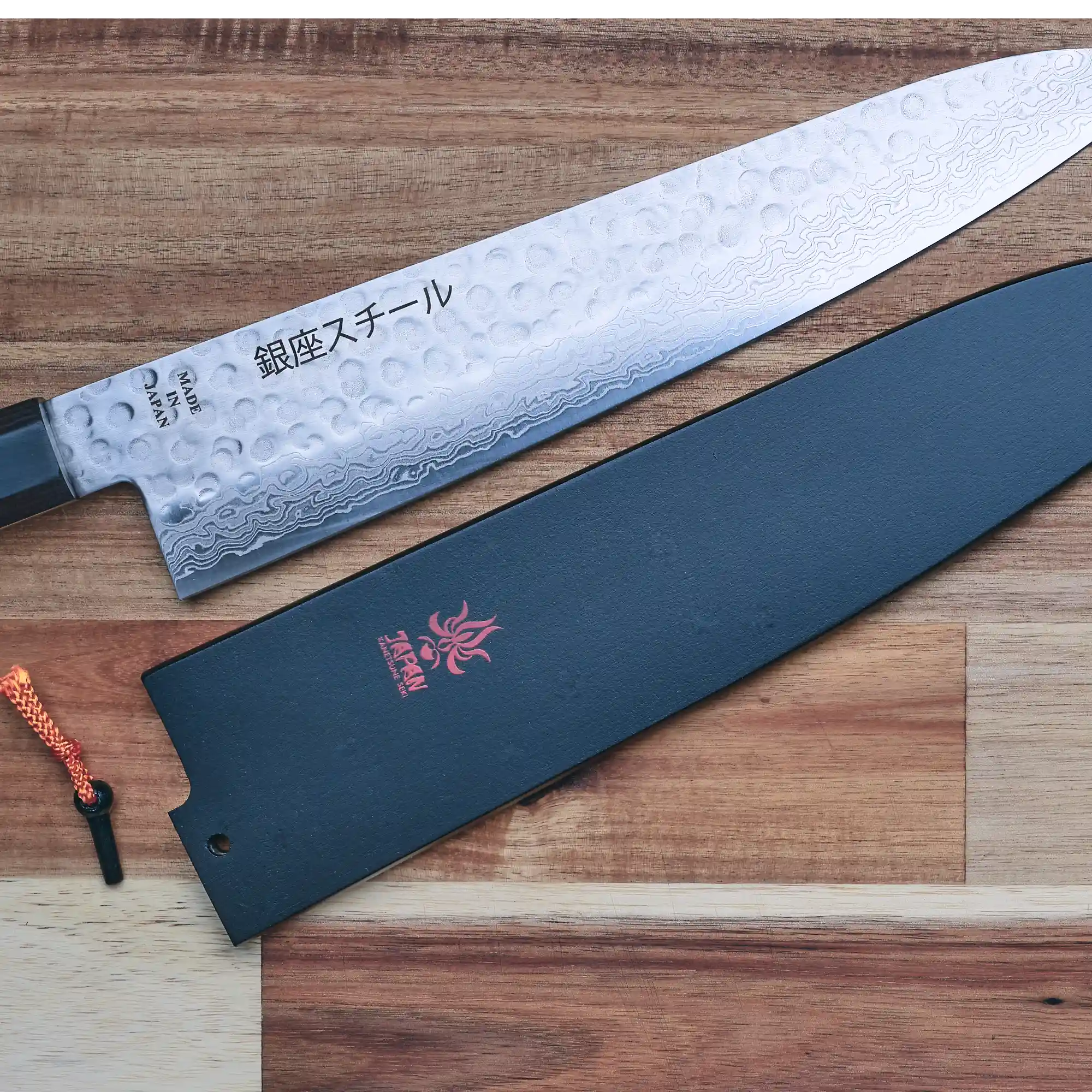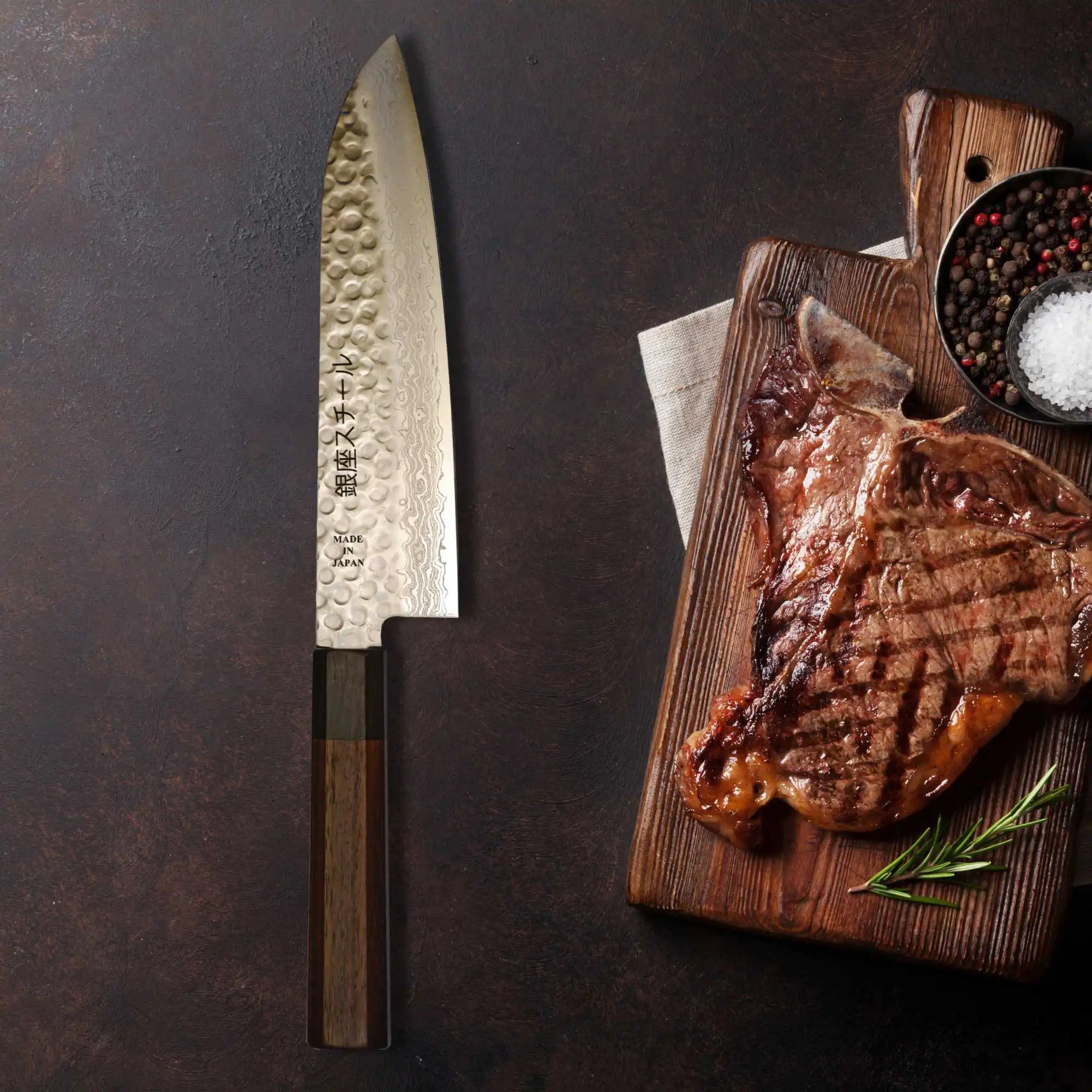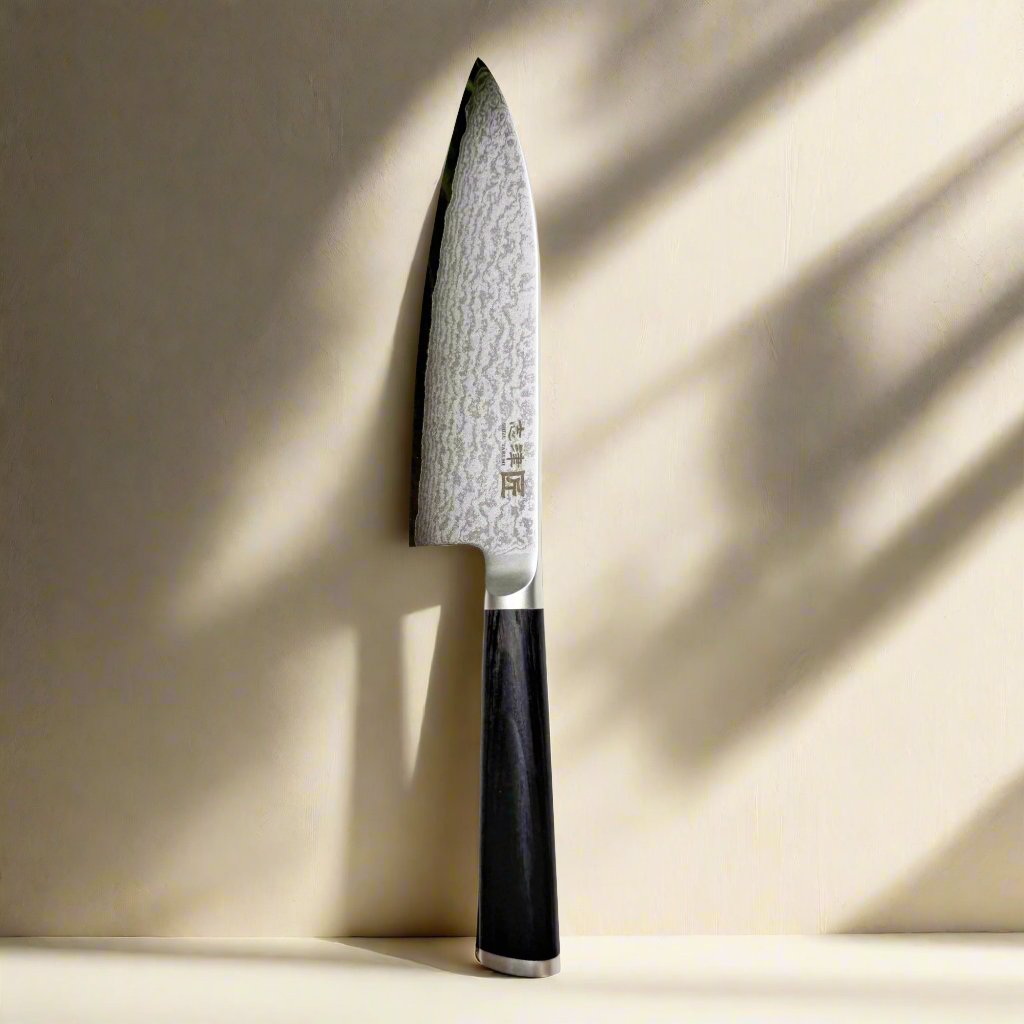
The Ultimate Guide to Knife Guards: Protecting Your Precious Blades
When it comes to maintaining the quality and longevity of your knives, a reliable knife guard is essential. Commonly known as a Saya in Japan, knife guards, sheaths, and knife covers serve to protect the blade and ensure safety during storage or transport. In this blog post, we’ll explore three major types of knife guards: Japanese Saya made with Magnolia wood, PVC guards, and leather sheaths. We’ll discuss the details, pros, and cons of each type to help you choose the best option for your needs.
1. Japanese Saya (Magnolia Wood)
Details:
The Japanese Saya, traditionally made from Magnolia wood, is a popular choice among knife enthusiasts for its aesthetic appeal and practical benefits. Magnolia wood is lightweight, resistant to moisture, and has a smooth texture, making it an ideal material for protecting high-quality Japanese knives.

Pros:
- Elegant Design: The natural wood grain gives a classic and refined look.
- Lightweight: Easy to handle and transport without adding much weight.
- Moisture Resistant: Helps prevent rust and corrosion on the blade.
- Custom Fit: Often carved to fit specific knife shapes perfectly.
Cons:
- Cost: Higher price point compared to other materials.
- Maintenance: Requires occasional oiling to maintain the wood’s condition.
- Fragility: Can crack or chip if not handled carefully.
2. PVC Guard
Details:
PVC knife guards are made from durable plastic materials, offering a budget-friendly and practical solution for everyday use. These guards are often adjustable, accommodating various knife sizes and shapes.
Pros:
- Affordable: Cost-effective option suitable for a wide range of budgets.
- Durable: Resistant to wear and tear, ensuring long-lasting protection.
- Easy to Clean: Simple to wash and maintain hygiene.
- Lightweight: Convenient for daily use and transport.
Cons:
- Aesthetic Appeal: Less visually appealing compared to wood or leather options.
- Fit: May not provide as snug a fit as custom-made wooden Sayas.
- Environmental Impact: Made from plastic, which is less eco-friendly.
3. Leather Sheath
Details:
Leather sheaths are traditionally used for hunting knives but are also popular for culinary knives due to their durability and classic look. High-quality leather provides excellent protection and a sophisticated appearance.

Pros:
- Durability: Leather is tough and long-lasting, offering excellent blade protection.
- Aesthetic: Timeless and elegant appearance that adds to the knife’s overall appeal.
- Secure Fit: Often features straps or snaps to keep the knife securely in place.
- Natural Material: Eco-friendlier compared to plastic alternatives.
Cons:
- Cost: Can be expensive, especially high-quality leather.
- Maintenance: Requires regular conditioning to prevent drying and cracking.
- Weight: Heavier than PVC guards, which might be less convenient for some users.
Conclusion
Choosing the right knife guard depends on your specific needs and preferences. Japanese Sayas made from Magnolia wood offer an elegant and custom fit for high-end knives but require careful maintenance. PVC guards provide a durable and affordable option with easy maintenance but lack the aesthetic appeal of wood or leather. Leather sheaths deliver a timeless look and excellent protection, primarily used for hunting knives, but they come at a higher price and need regular care.
Investing in a good knife guard is crucial for preserving the quality and longevity of your knives. Consider the pros and cons of each type to find the perfect match for your kitchen arsenal.


















Leave a comment
This site is protected by hCaptcha and the hCaptcha Privacy Policy and Terms of Service apply.